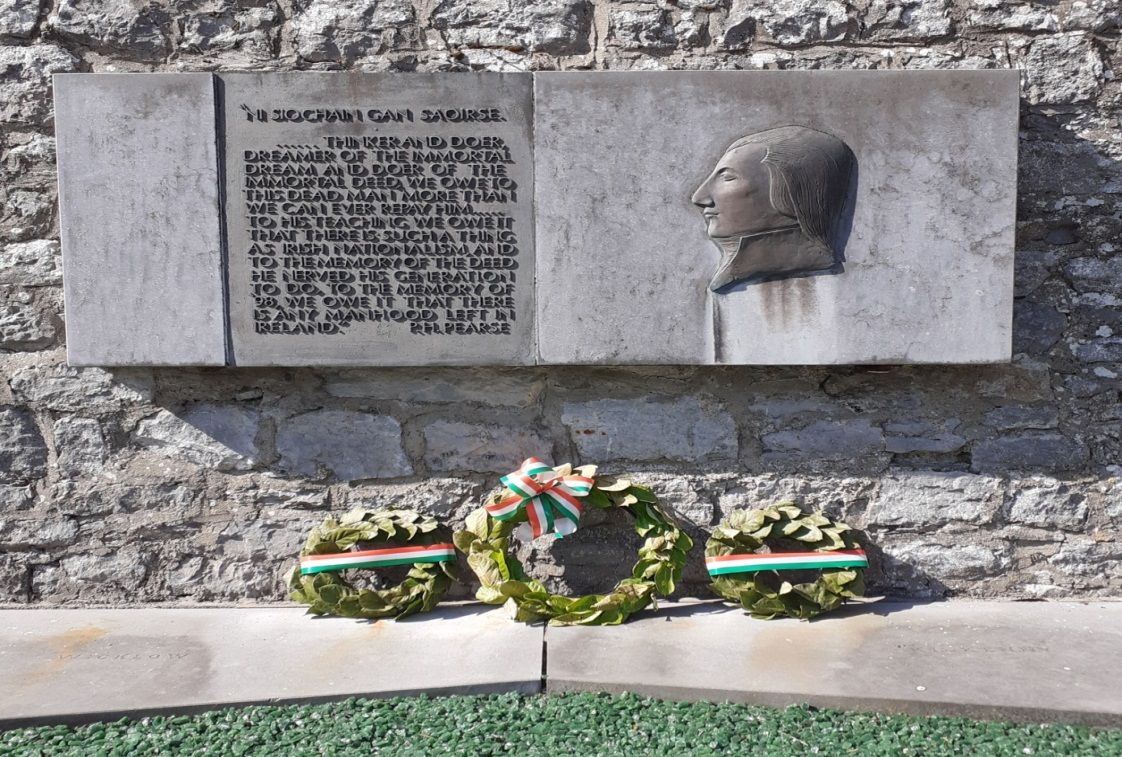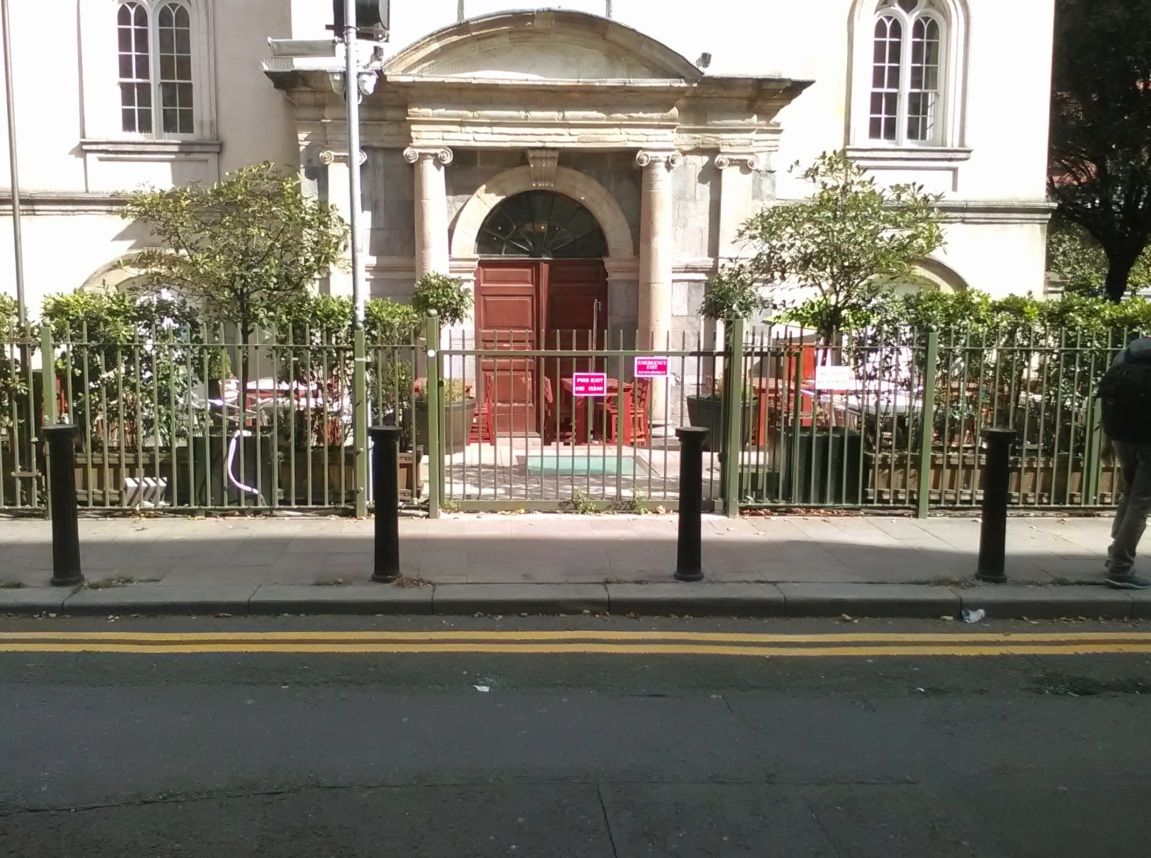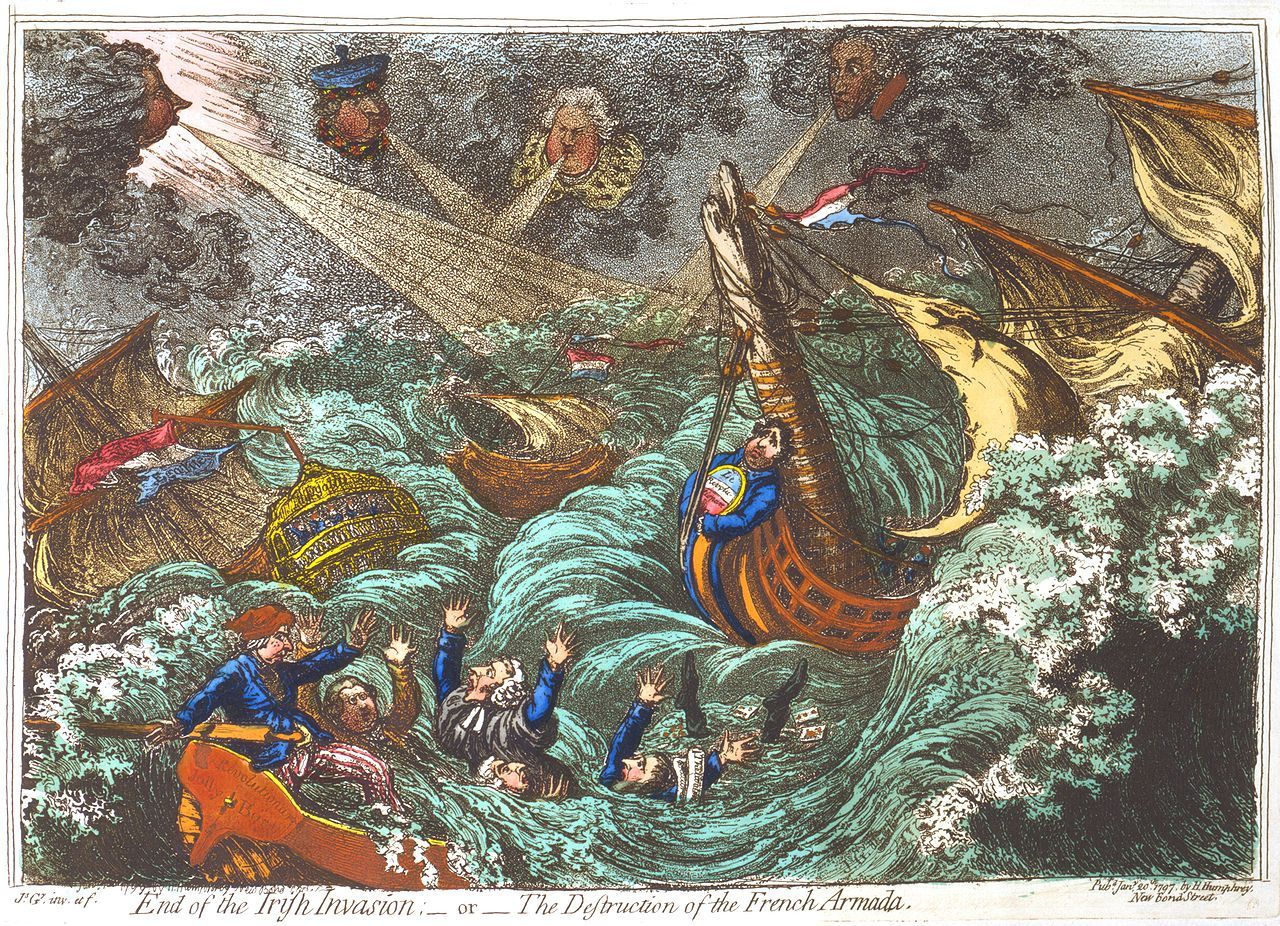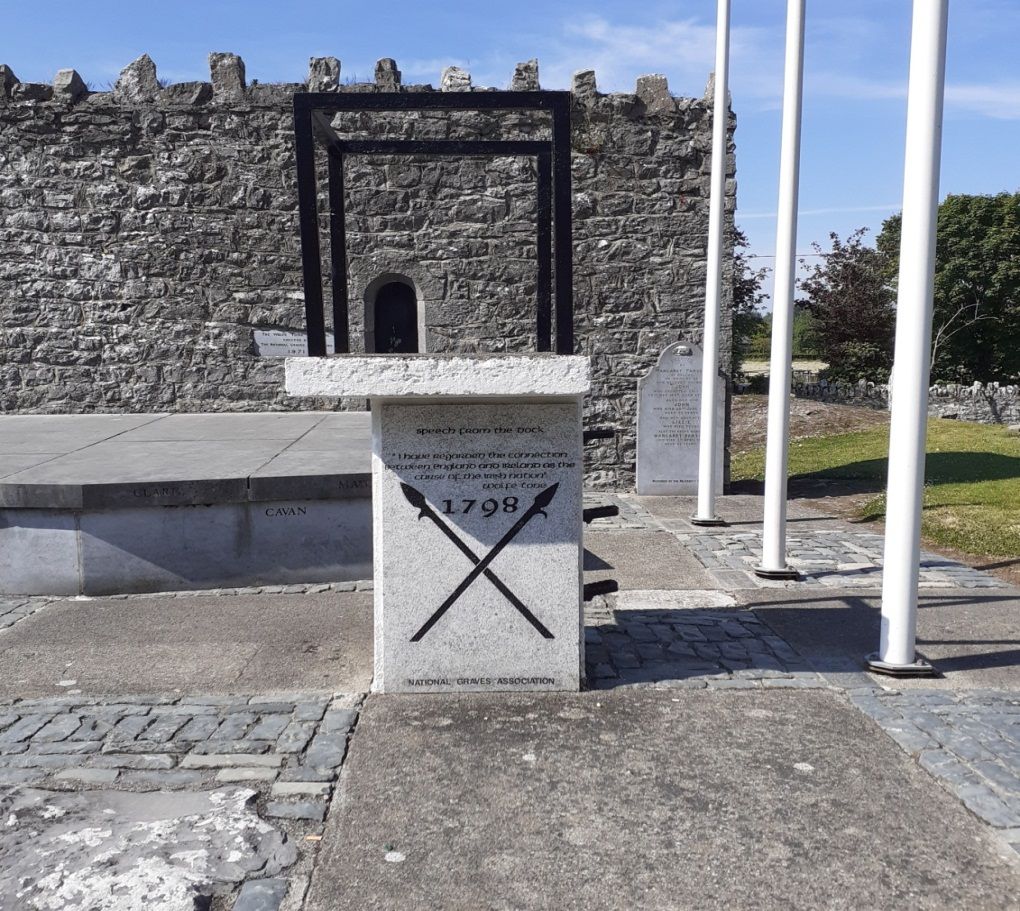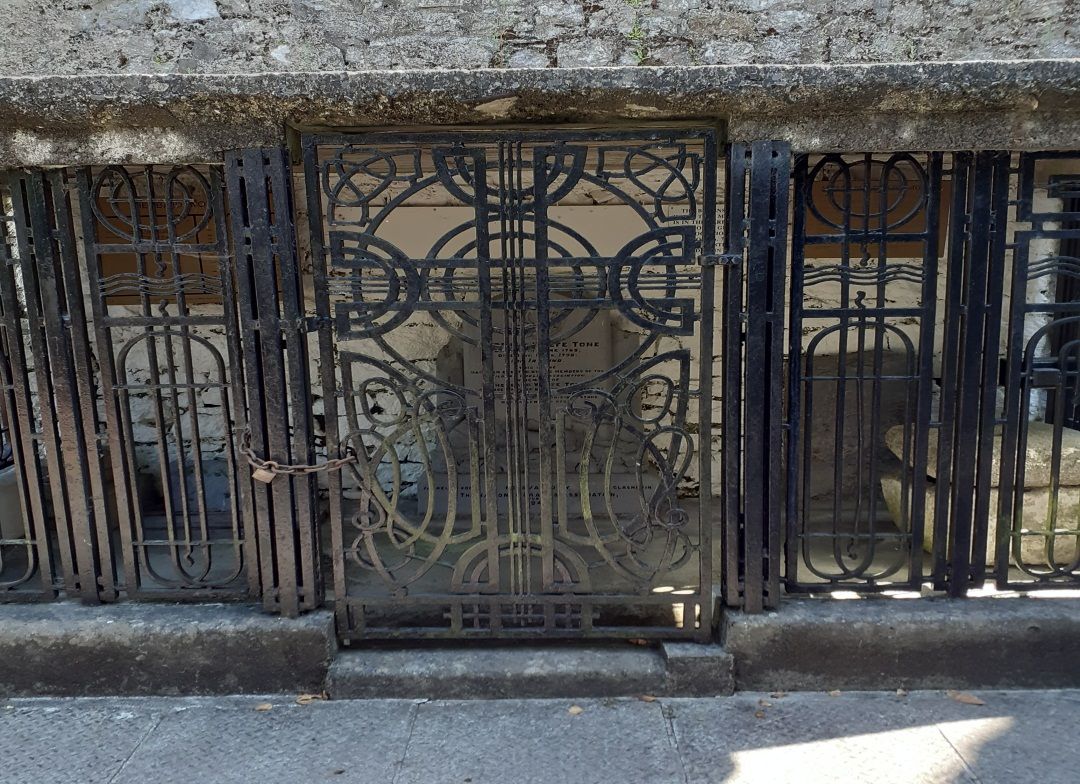An raibh a fhios agat? Did you know?
Theobald Wolfe Tone
Who fears to speak of 98 was a popular ballad in the Ireland of the 50s and 60s and indeed you might still hear it sung to this day. It invokes perhaps a sense of pride, of unfinished business if you would and of national aspirations. John Kells Ingram it was who penned this verse albeit it was not published until 1840 apparently. Despite its sentiments, Ingram himself turned staunch Unionist it is said. This paradox if you would might represent a microcosm of the convoluted reality of Irish history. It might at least be the common catch cry heard within the ranks of the students of history who take on the daunting task of disseminating what we have inherited. This overview looks back at the life of Theobald Wolfe Tone and his attempts to right a wrong as he saw it. Was he a sentimentalist, a republican, or an accomplished politician? This brief overview we hope will help to throw some light on an age-old conundrum glancing as we must into the views and opinions of others but also from the writings of Tone himself.
Introduction
The Theobald Wolfe Tone commemoration is normally held every year at Bodenstown in County Kildare. Normally there are always two celebrations, one on behalf of the government, the other by Sinn Fein. In mainstream politics in Ireland, or rather in the Republic, political parties who associate themselves with the nationalist cause call themselves republicans. And so it has always been. Many historical observers and people with a deep interest and connection with Ireland sometimes find it hard to reconcile the fact that Tone was a Protestant. But a glance through Irish history will reveal that some within the greater Protestant community in the Ireland of Wolf Tone found that their treatment by the authorities was not too dissimilar to that meted out to Catholics. And so it was that many closed ranks with their supposed erstwhile enemy. Tone was one such.
He tried to break the link with the prejudices that cast one religious persuasion in the role of the subservient or the enemy. Religious wars were the reality within Europe and had been for a considerable period of time. This sentiment, in the Ireland of the time would propel itself up to the present day one could argue; not in the physical manifestation of heretofore but becoming more and more enmeshed in the expansion of realist manoeuvrings. When one appraises the situation in Northern Ireland over the last number of years a phrase we have become accustomed to hearing is…Catholic, Protestant and Dissenter. But the voice of reason is sometimes lost in the reality that is Northern Ireland. The franchise of the persuaded is oft times the trump card of the persuader who controls it in times of necessity as history has proven.
Tone sets this out in his own analysis of the situation in Ireland in 1796, according to Stanley (1996. pg134). Paraphrasing Tone he cites what he terms the Protestant population as being in control of the government and in possession of five-sixths of the landed property of the country. All of the organs of the nation were under their control while they represented about ten per cent of the population. Stanley suggests that the Dissenters (Presbyterians) if you would made up a similar proportion of the population while Catholics accounted for the remainder. The Dissenters were people who were primarily Protestant but who objected to the supremacy of the Anglican Church. One could be forgiven for being equally perplexed by Tone’s earlier pronouncements which appeared to favour the maintenance of the link with England in recognizing the king as sovereign.
In the eighteen and ninteenth centuries Europe was convulsed by the threat seen as emanating from France in the person of Napoleon Bonaparte. Other imperial powers such as England were deeply concerned by the advances being made by Napoleon and were equally concerned that it faced the threat of imminent invasion by the forces of France. Ireland, a land that had come under the jurisdiction of England over centuries was seen as the proverbial back-door into England. The authorities were also conscious of the unease that was festering in Ireland and the effects that its policies were having on the populace. This would ultimately lead to the Act of Union in 1800 but not before the events of 1798 had been played out.
Theobald Wolfe Tone fist saw the light of day on the 20th June 1763. His parents were Peter and Margaret Tone who lived at that time in close proximity to Dublin Castle. They were according to Stanley (1996) a prosperous middle-class family who subsequently moved to 44 Stafford Street (now Wolfe Tone Street). The young Tone was baptised in the nearby St. Mary’s Church. The Tones apparently were of French extraction their ancestors having arrived in Ireland in the 17th century it appears via England. Theobald’s mother, Margaret whose maiden name was Lamport, hailed originally from Drogheda. She herself was Catholic but changed her allegiance to become Protestant if for no other reason than to accommodate the fact that the rest of her family were Protestant, according to Stanley (1996). His father Peter was a coachbuilder by trade but inherited 200 acres of land from his father in Clane County Kildare. As it transpired the farm was set on the estate of the Wolfe’s who were in residence there. Margaret Tone had indeed spent some time in the company of their neighbours and worked for Mrs Wolfe prior to her marriage. Their first son they christened Theobald Wolfe after the young squire, hence the name.
Formative Years
The Dublin of Tone in the 18th century was indeed a place of changing fortunes. It had risen from the slumbers of a ‘medieval backwater’ as one scribe likened it to become the second most important city in the British Empire. Many of the now fashionable districts of the city were taking prominence in the architectural revolution that was erupting. The sequential squares of solidity that were: Merrion, Fitzwilliam and Mountjoy promised a new awakening, at least to the established holders of power and privilege. They would be joined by the Custom’s House and The Four Courts. The young Tone wasn’t too enamoured with the mundane routine of attending school and so as an alternative liked to tour the city of changing skylines. However, family fortunes were equally changing with a worsening of his father’s situation and as a consequence the family were forced to move to Clane in Kildare. Theobald would remain in Dublin but was summarily called to his father’s presence after the former was informed by the Reverend Craig about his son’s absence from school. After the proverbial meeting of minds so to speak, Tone would go on to finish elementary tuition under the direction of Craig and progress to Trinity College in 1781 where he would ultimately graduate having studied the classics. He continued his studies in London for a period of two years at the Middle Temple and was called to the Bar.
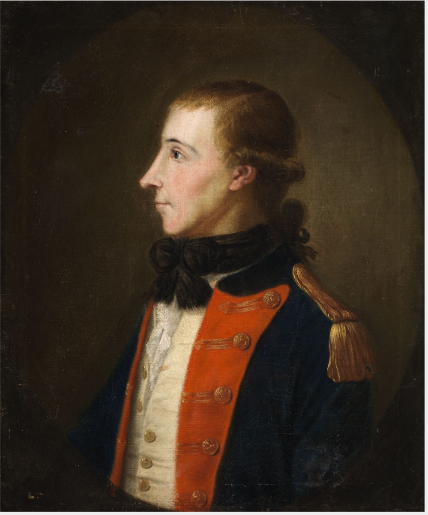 In the interim he had developed an interest in amateur dramatics and made the acquaintance of the Martins. Richard Martin was a landowner from Galway but Tone’s attentions were more focused on his beautiful wife, according to Stanley (1996). They lived in Kildare Street it appears. The call of commerce meant that Mr Martin was frequently away on business which left Tone to become more acquainted with Mrs Martin. Citing from Tones journal, Stanley (1996) quips that ‘the affair did not go beyond the bounds of propriety’. The fact that this arrangement as it were eventually petered out didn’t stop Tone from finding his soul mate. It appears that Tone subsequently fell in love with a young girl named Matilda Witherington. She was the daughter of William and Catherine Witherington.Tone and his young wife would go on to have four children. Her edest son William we owe for the compilation of his father's journal. Indeed William was the only child that survived into adult life.
In the interim he had developed an interest in amateur dramatics and made the acquaintance of the Martins. Richard Martin was a landowner from Galway but Tone’s attentions were more focused on his beautiful wife, according to Stanley (1996). They lived in Kildare Street it appears. The call of commerce meant that Mr Martin was frequently away on business which left Tone to become more acquainted with Mrs Martin. Citing from Tones journal, Stanley (1996) quips that ‘the affair did not go beyond the bounds of propriety’. The fact that this arrangement as it were eventually petered out didn’t stop Tone from finding his soul mate. It appears that Tone subsequently fell in love with a young girl named Matilda Witherington. She was the daughter of William and Catherine Witherington.Tone and his young wife would go on to have four children. Her edest son William we owe for the compilation of his father's journal. Indeed William was the only child that survived into adult life.
During the political demise as it were of the United Irishmen in 1794 Wolfe Tone later managed to get to America in 1795 with his family. He had been accused of treason the result of which saw him having to opt for voluntary exile rather than prosecution. The next few years would see him in another form of exile from his family as his exertions took him from America to France without the comfort of his family to which Matilda had to cope in his absence. They would eventually reunite in France, Matilda and the young children having to undergo a perilous sea journey from America which took them initially to Germany and from there to France by coach.
The United Irishmen.
Professor Thomas Bartlett (2011) in his piece on The 1798 Irish Rebellion gives great insight into the events leading up to and indeed the turmoil that was the debacle itself. Some of the incidents recorded are indeed unsavoury but from a historical analysis are very enlightening. Whilst the French connection was seen as pivotal to any chance of success for Irish independence it would be incumbent on the Irish themselves to show leadership in this regard. A spark was required to light the fuse of rebellion and that would come, not from Dublin…but from Belfast. In terms of associates, people who would join Tone in striving to achieve the aim of liberty, was one Thomas Russell, Henry Joy McCracken and William Drennan. Russell had seen service with the British army in India but like Tone had fervent nationalist aspirations.
Initially at least the focus of this organisation was for reform, not rebellion as some sources suggest. However, it was the events in France a decade earlier that had focused minds on achieving some degree of moderation for those excluded from enjoying the same rights as people of the Anglican persuasion in Ireland. The outbreak of hostilities in 1793 between Britain and France placed the United Irishmen under greater scrutiny of Dublin Castle and in 1794 they were effectively a prohibited organisation. The Castle had also become aware of the negotiations between Tone and the French government. Following on from this the clampdown on the United Irishmen forced them underground with the upshot being that they now reconstituted themselves as Bartlett ( 2011) reminds us, into seeking a complete break from Britain.
The French are coming
The preparations that were put in place for the Rebellion of 1798 were contingent on receiving support from France. Indeed, two years prior to this the French had attempted a landing at Bantry Bay in Cork but a number of events went against that attempt. The weather would wreak havoc as a violent storm blew the flotilla off course and the muddled ineptitude of the French commander Admiral Hoche only added to the sense of defeat. There was no option alas but to return to France. But Tone would not be deterred. In Ireland but particularly in Ulster, the birth place of the United Irishmen, the cry for rebellion was reaching a crescendo amongst the younger revolutionaries while older heads sought patience and pleaded for more time and the arrival of the French. However, when one looks back at the scale of the first attempt as it were, with 14,000 French soldiers as part of that armada, one can get a sense of how things might have magnified themselves. And so to 1798 and Tone’s date with destiny. It is noticeable; as Aldous (2007) points out that Tone had had the rank of adjutant general of the French Navy bestowed upon him and was wearing his uniform when apprehended.
War in Wexford
Having learned from the potential that the 1796 attempt had presented, the Castle had been busy infiltrating the ranks of the United Irishmen with spies and informers. This would have the desired effect. The organisation in Dublin was in disarray but the Castle had failed to notice the spark of revolution elsewhere. Wexford would make its voice heard. By all accounts the Castle didn’t anticipate any hint of unrest in Wexford. However, on the night of the 23/24 of May 1798 the mail coaches leaving Dublin were seized which was the signal for the Rebellion to begin, according to Bartlett (2011). Initially the Rebellion centred on Kildare, Wicklow, Meath and Carlow but was suppressed by government forces with Dublin having failed to ignite. The events occurring in Wexford however were seismic none the less as rebel numbers swelled and met with some success most notably at Oulart Hill where over 100 members of the yeomanry were slaughtered. But the rebel victory would be short lived. In Ulster the United Irishmen initially failed to respond and come to the assistance of their comrades in the South. In June they did mount a spirited response after a change of leadership which saw Henry Joy McCracken playing a pivotal role. However, government forces would eventually win the day and prominent leaders of the Rebellion such as McCracken and Father Murphy after the defeat in Wexford would face execution.
It was in the wilds of Donegal on 3rd November 1798, or to be more precise on Lough Swilly near Buncrana that Tone’s date with destiny happened. While attempting a second coming with French forces, albeit far smaller when compared to the 96 endeavour, he was apprehended by the British. He was sentenced to be hung. Much has been made of Tone’s death in that he chose to die by his own hand. However, in an article in The Irish Times, O’Rahilly (1997) puts forward the case that in fact Tone died as the result of a gunshot wound to the throat; not as a result of applying a knife to end his life. On reflection, it is perhaps fitting to indulge in the argument that persists about Tone and to try to ascertain if his achievements as such they were, merit the distinction that embodies him in the echelons of republican immortality.
Tone's Achievements
Kevin Whelan (2008) writing in Irish History on the topic: 3rd volume by Moody, McDowell and Woods, The Writings of Theobald Wolfe Tone, 1763–1798, posits that the rationale or indeed the reality or otherwise of Tone’s achievements deserve closer scrutiny. The sceptics might need convincing after all, the admirers are already convinced perhaps. Does he deserve the mantle of ‘The Father of Irish Republicanism’? Whelan looks at four particular issues that Tone is credited with and decides that he is deserving of the accolade.
(A) Founder of the United Irishman.
Kevin Whelan (2008) writing in his review of 'The Writings of Theobald Wolfe Tone' posits that Tone was the founder of the United Irishmen. It might be fairer to say that he was co-founder of The Society of United Irishmen which occurred in Belfast in 1791, according to Moran (2013 pg197). Indeed Stanley profits that it was the quartet of Tone, Russell, Samuel Neilson and Henry Joy McCracken who were instrumental in its inception. Tone did assist in writing its manifesto Stanley (1966) continues and indeed it was Tone again who filled the breach as secretary in the Dublin branch of the society after the arrest of the colourful holder of that title, one Napper Tandy. However, it was now becoming more coherently obvious to the people involved that democratic means would not be the vehicle to achieve the aims that were the driving force behind their ambition but rather that insurrection would be the catalyst for achieving those aims. Tone supplied the name, the political agenda, and the crucial link role between Dublin and Belfast Whelan (2008) asserts.
(B) Separatism
Since the inception if you would of an Irish Parliament back in the 13th century, we had in name at least a parliament. But this parliament was always subservient to the holders of power in England. In Tone’s time the office in Ireland was held by the Lord Deputy at Dublin Castle. This was the real seat of power in Ireland. But Tone spells it out in no uncertain terms in his memoirs that the root cause to all of Ireland's problems lay with the link with England. It is not the intent of this overview to utilize the soundbite of selection to underscore a particular direction but to depend on the thrust of Tone's own sentiment that is, one could argue, manifestly clear as is evidenced in his memoirs. It might however be fair to comment that the titular holders of power in Ireland were part of an arrangement that discriminated against the majority in favour of the minority. The Penal Laws were not a concoction of coincidence.
(C) The Catholic Committee
The committee had been formed in 1757 by one John O’Connor to further the rights of Catholics who had felt the full force of the Penal Laws. These laws discriminated against Catholic and Dissenter (Presbyterian) in an attempt to coerce them into accepting the Anglican faith. Fast- forwarding to the 1790s, meetings of the committee took place in Back Lane which is in the vicinity of Christ Church in what is today Taylor’s Hall, the last remaining Guild Hall in the city. It was at the time also used by the United Irishmen and became known as The Back Lane Parliament. Here again Whelan (2008) espouses the organizational capabilities of Tone and points to his added qualities if you would as a spin-doctor and as a formidable political strategist. What perhaps can be argued as his most telling contribution to the cause of seeking parity of esteem for Catholics was set out in his pamphlet: An argument on behalf of the Catholics of Ireland. It might be fair to say that in this communicative missal he sets out the rationale for equality for all the citizens of Ireland and is most forthright in his condemnation of the yielders of power and the merchants that comprised the East India Company. That Ireland was disadvantaged to the benefit of England in all matters of governance and commercial capacity, he is quite adamant.
(D) United Irish diplomat in Paris
The evidence is this regard is unequivocal in that French forces were dispatched to Ireland at the request of Tone on two occasions. One can speculate that this must have required a great deal of persuasiveness and political ability on the part of Tone. An armada of over forty ships with in excess of 14,000 soldiers was proof positive one can speculate of the persuasive powers of Tone in 1796. The second attempt in 1798 was somewhat less comprehensive with fewer resources. It was during this second coming as it were that Tone was apprehended by English forces and detained. It should be pointed out that Tone was an officer in the French navy. This accolade had been bestowed on him on the 25th March 1798 when he was made an adjutant-general in the Army of England. An invasion of England had been considered but was not deemed appropriate by Napoleon.
Conclusion.
Writing on Wolfe Tone in his book’ Famous Dubliners’, Stanley (1996) is forthright in his assertion that Tone was someone who attempted to unite the different factions if you would that make up the landscape of Ireland, Catholic, Protestant and Dissenter. In contrast he paints what he calls the extremist republican groups as responsible for sowing the seeds of mistrust and dissension in Northern Ireland. Their recent campaign of violence which to all intents and purpose ended as part of the Peace Process being a case in point, he continues. We have attempted to look back on his short life and better acquaint ourselves perhaps with the reality of the man, not the sound bite. Might it be fair to speculate that Tone achieved a considerable amount? Putting labels on people or utilizing them to perpetuate division is, it could be argued, are contrary to the principles that Tone tried to foster. Surveying the country that we inhabit, with its borders of social inequalities and the triumphalist trappings of the greedy, was arguably the direction that Tone and people like him tried to divert us from. Perhaps it is time for the men of no property to realise that the inclusiveness that Tone sought to achieve gives power to the people; and not to the chattering classes that have manipulated the country that we all love, for so long, and for their own ends.
"Whatever be the sentence of the court, I am prepared for it".
- Theobald Wolfe Tone
Bibliography
Aldous. R. (2007) Great Irish Speeches. Quercus. London UK.
Bartlett.T. (2011) the 1798 Irish Rebellion. BBC.UK.
Donovan. K. (1997) Who fears to speak of 98? The Irish Times Dublin, Ireland.
Gahan. The Scullabogue Massacre 1798. History Ireland.
Gillray. J. (1797) the Destruction of the French Armada caricatured the failure of Hoche's expedition. Accessed on Wikipedia 29th June 2021.
Kleinman. S. A Rough Guide to Revolutionary Paris: Wolfe Tone as an accidental tourist. History Ireland.
Moran.S. (2013) Great Irish People. Terenure, Dublin Ireland.
McMahon.S. (2010) Battles Fought on Irish Soil. Londubh Books Dublin Ireland.
O’Rahilly A. (1997) Wolfe Tone’s Death. The Irish Times. Dublin Ireland.
Tone, T. (1791) Argument on Behalf of the Catholics of Ireland. The Society of the United Irishmen Belfast. Ireland by C.M.Barry (2013) Irish Philosophy.
Whelan. K. (2008) The Writings of Theobald Wolfe Tone, 1763–1798, Volume III: France, the Rhine, Lough Swilly and death of Tone, January 1797 to November 1798.
(2001) Wolfe Tone ideology is as relevant today. The Irish Times, Dublin Ireland.
Wikipedia. Portrait of Wolfe Tone. anonymous - http://onlinecollection.nationalgallery.ie/objects/3250

What You Can Expect
A walk through Dublin City in the company of a native Dubliner with the emphasis on history, culture and the great Irish ability to tell a story and to sing a song. In addition, and at no extra cost an actual rendition of a self-penned verse or perhaps a spot of warbling. I'd like to share my love of history with you, after all the past is our present and should be part of our future.
About The Tours
Tours are in English, with Irish translations, where appropriate. I also speak Intermediate level Dutch. Duration: 3 hours approx., with a short break in-between. Tour prices and booking options are available in the booking section.
The contact hours are Monday to Sunday, 09:00 - 20:00 IST.
Special Options
We can also arrange a half-day private tour for a maximum of twelve people. This incorporates a collection of parts of our three Tours combined. Tour duration 4-5 hours approx. A break for refreshments in between. Group of 2: €50 per person, Group of 3: €30 p.p., Group of 4 or more: €25 p.p. Refreshments: €10 approx. (This is an extra). Please contact us for details.
Copyright ©2025 Tailteann Tours
Designed by Aeronstudio™


